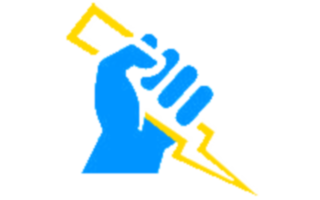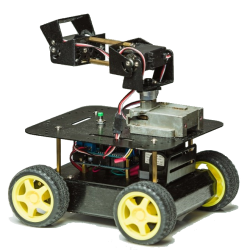Divine powers

Gods and the religions in which they are worshiped are an integral part of fantasy worlds. Of course, they often act only as part of the surroundings - i.e. there are temples, priests and some kind of local god or pantheon. But they do not have any direct influence on the real world - they are simply prayed to. Some authors add divine miracles to the world - when prayers and faith, in principle, allow one to achieve additional opportunities. Priests and palladins appear in the plot, who have powers similar to magic, but have a divine source.
The main difference from classical magic is that most often the petitioner does not have his own power, but receives
theirs from God in return is not worship, following the rules and depending on other factors. In fact, the result does not depend on lengthy research, creating your own spells and developing magical abilities. Here, the firmness of faith, following restrictions, fighting temptations, and simply the disposition of a particular god towards you has a greater influence.
In some books, the gods are generally present as separate characters. And here the author needs to walk a fine line. On the one hand, the gods must be more or less human - their behavior, way of thinking and reasons for making decisions must be understandable to the reader. On the other hand, the gods must have enormous power. And the stronger God is, the less he will worry about individuals or even states. After all, he will have his own interests, far from our understanding.
Most often, authors get out of this paradox by not distancing the gods too much from ordinary people. They will have great powers, but only slightly beyond the capabilities of strong mortal magicians. Then their characters will be as close as possible to the characters of ordinary people and, accordingly, more understandable to the reader.
In books with divine entities, there is usually more than one such entity. And this opens up the possibility of confrontation between them. Moreover, ordinary mortals will be the instruments of divine confrontation. Moreover, often the main character will take an active part - both voluntarily and as a pawn who does not even imagine the scale of the global game.
To get rid of the paradox of a super-powered entity being unable to achieve its goals simply by wishing it, the plot often places many restrictions on the gods. Often they cannot use their powers directly at all, except in very exceptional cases. This puts the gods on an equal footing with the rest of the cast and allows them to participate in the plot.
If the main character in the plot of the book is constantly developing and growing in his powers, then the author is forced to strengthen him with each new book. And when the hero runs out of worthy opponents among mortals, he can begin to confront even the gods. As a result, the hero can even become a divine entity himself as the finale of his development.
The presence of divine entities allows us to significantly increase the scope of the book's action. Having started by throwing fireballs, the author can gradually move on to multi-million battles and spells that destroy continents. For fans of epic confrontations, this will definitely be an advantage.
Road Max – Areality

The life story of a man who unexpectedly came into the sight of a certain System that controls the whole world. Constantly finding himself in new realities, he, unlike those around him, remains himself, remembers the past and is constantly evolving. Who needs his new qualities and what will this lead to? What is the System and Who controls it? Is our life a reality, or are memories just substituted by some kind of program? Life's truth, diluted with light philosophy, interesting dialogues, typical characters, a complex interesting plot - that's what "AREALITY" is!

 Books
Books Fantasy
Fantasy Fiction
Fiction Humorous
Humorous Heroic
Heroic  Science fiction
Science fiction Political
Political Alternative history
Alternative history LitRPG
LitRPG Steampunk
Steampunk Social fiction
Social fiction Psychological
Psychological Accidental travel
Accidental travel Dark fantasy
Dark fantasy Intrigue
Intrigue Detective story
Detective story All tags
All tags Technology
Technology Electronics
Electronics Programming
Programming Weaponry
Weaponry Arduino
Arduino Projects
Projects